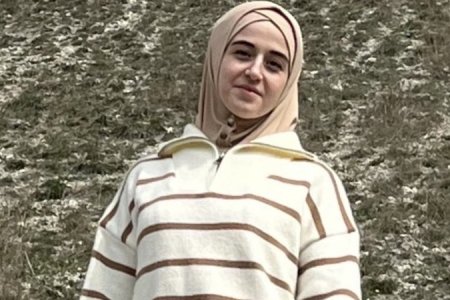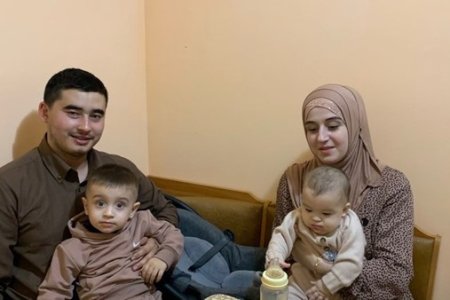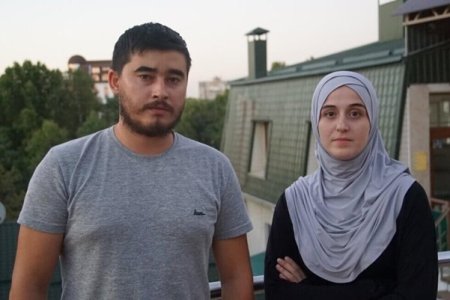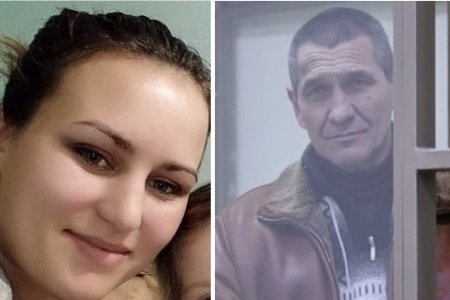
A ‘court’ in Russian-occupied Crimea has refused to order critical evidence in the extraordinary ‘trial’ of a young Crimean Tatar mother for not denouncing a social media contact with whom she had a conversation back in 2016. The Crimean ‘court’ claimed that the information, which could undermine the entire case against 25-year-old Enine Zekeryaeva, was ‘superfluous’.
Zekeryaeva’s lawyer, Emil Kurbedinov had asked the occupation Kirovsky court’ in Simferopol to obtain detained information about the VKontakte account of the young Ukrainian woman, Marina Striapnia, with whom Zekiryaeva communicated back in 2016. Kurbedinov had asked for details about Striapnia’s activity on the social media platform from 2015, about the geolocation from where the messages had come and where they were received. Both Emine Zekeryaeva and her lawyer are convinced that there has been what they describe as “FSB interference” in the actual correspondence. Such ‘FSB interference’ was, for example, used to concoct surreal charges against Oleh Prykhodko, a Crimean political prisoner persecuted for his pro-Ukrainian position and opposition to Russia’s invasion and occupation of Crimea. On that occasion, evidence of such fabrication was presented in court, yet ignored. This time, the ‘judge’ has simply chosen to block the likely proof of shenanigans.
Emine Zekeryaeva is charged under Article 205.6 of Russia’s criminal code, so-called ‘failure to report a crime’. Neither the prosecution, however, nor the ‘court’, seem interested in ascertaining whether there actually was a ‘crime’ to report. The charges pertain solely to a conversation on VKontakte between Zekeryaeva, who was just 18, and Marina Striapnia, a former schoolmate. The latter had gone to Syria and tried, in 2016, to persuade Enine to also go. Emine had not only refused but had also tried to persuade the young woman to return from Syria. Russia is now claiming that the woman in Syria was a member of “an armed formation whose aims are against the interests of the Russian Federation”. It has not proven this, and knew about the correspondence for several years before, in 2023, initiated criminal proceedings against Striapnia, and, over alleged ‘failure to report a crime’, against Zekeryaeva.
During the last ‘court’ hearing, both Emine Zekeryaeva and her father were questioned and confirmed that the FSB had been aware of the correspondence since at least 2018.
Zekeryaeva also explained that she had not had any information about planned ‘terrorist activities’. The prosecution came up with an alleged ‘expert’ who appeared as prosecution witness, claiming that Zekeryaeva “knew a lot about terrorist organizations and was a specialist in this.” The grounds for this ‘conclusion’, Kurbedinov explains, were some pictures that he had been sent by the FSB. One, he said, contained a flag of Hizb ut-Tahrir, a non-violent Muslim organization which Russia uses as pretext for political and religious persecution in occupied Crimea, another the flag of the so-called ‘Islamic state’. He did not provide any explanation as to where these pictures had come from.
As reported, the FSB turned up at Emine Zekeryaeva’s home early in the morning of 7 August 2023. She and the two children were at her parents, and it was initially assumed that the FSB had come for her husband, Asan Zekeryaev, who is the nephew of political prisoner Leman Zekeryaev and had been one of 23 Crimean Tatars detained on 25 January 2023 merely for trying to show solidarity with the imprisoned men. Later, however, the FSB arrived at Emine’s parents’ home and forced her and her two pre-school-aged children into their car and drove her back to their home where they carried out a search and took Emine away for interrogation. All of her requests for a lawyer to be present were ignored. On 5 September, she received two phone calls from a person who claimed to be from the FSB, and to have been present during the search, but refused to identify himself. He demanded that she come to the Investigative Committee in Dzhankoi, and began threatening to simply come and take her away after she asked, as is her right, for a formal summons and said that she wished to consult with a lawyer.
Although the criminal proceedings were initiated then, Zekeryaeva and her lawyer were only informed of them in Novembe4 2023, with the formal charge laid in December.
This is a very worrying development with Russia using ‘terrorism’ legislation over a social media conversation when two young former schoolmates were probably both just 18. Kurbedinov is convinced that the ‘case’ is aimed at inculcating the practice of denunciations by ordinary citizens, and another form of repression and intimidation of Crimean Tatars.
The ‘trial’ is coming to an end, with the next hearing on 26 June possibly the last before the verdict.



